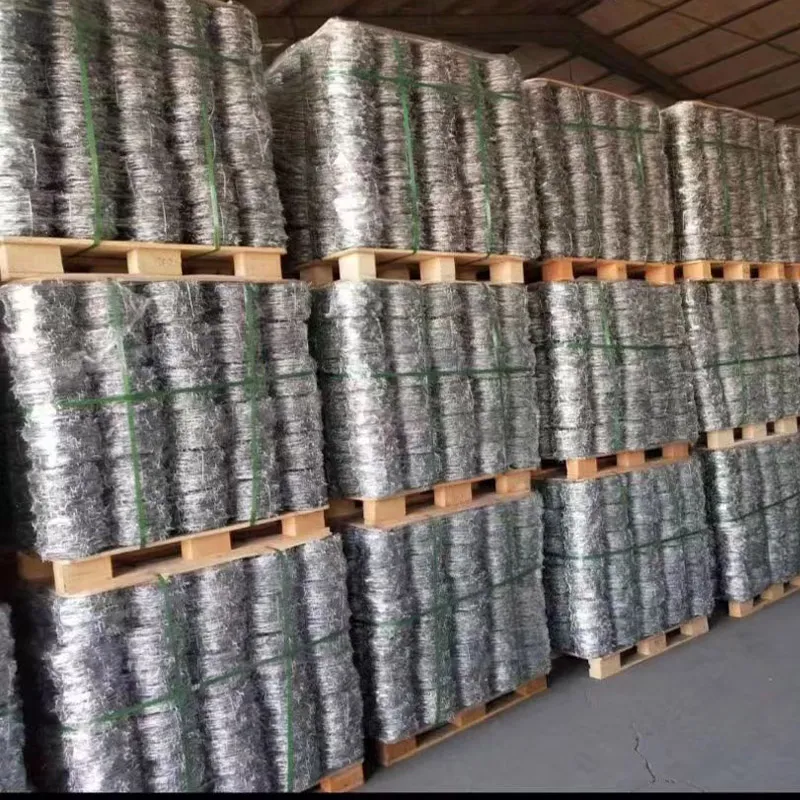Aug . 13, 2024 19:51 Back to list
Effective Solutions for Protecting Livestock with Sheep Netting Fences in Rural Areas
The Benefits of Sheep Netting Fences in Livestock Management
Sheep netting fences have become a crucial component in effective livestock management, particularly for sheep farmers. These fences offer numerous advantages that enhance the safety of both the animals and the surrounding environment while also proving to be a cost-efficient solution for farming needs.
One of the primary benefits of sheep netting fences is their ability to provide strong yet flexible barriers for sheep. These fences are often made from high-quality steel or plastic materials that are designed to withstand harsh weather conditions and resist wear and tear over time. Unlike traditional barbed wire fences that can injure sheep and other livestock, sheep netting fences have smooth edges, minimizing the risk of cuts or abrasions. The flexible design of the netting allows it to move and bend with the sheep, reducing the likelihood of them getting stuck or entangled. This protective feature is vital for the welfare of the animals and ensures that they can move freely within their designated area.
In addition to safety, sheep netting fences are highly effective at containing flocks. Sheep are known for their inquisitive nature and tendency to explore beyond their allocated space. The mesh design of sheep netting provides a visual barrier that helps keep them within the designated pasture. This containment not only prevents sheep from wandering off but also minimizes the risk of them encountering predators or traffic, which can lead to injury or loss. By securely fencing in the flock, farmers can focus on managing their herds and improving productivity without the constant worry of their animals straying.
sheep netting fence

Another significant advantage of sheep netting fences is their ease of installation. Unlike traditional fencing methods which typically require heavy-duty posts and intricate designs, sheep netting can be set up quickly and efficiently. Many farmers appreciate the lightweight nature of the materials, which allows for easier handling and installation. In addition, these fences can be erected without the need for specialized tools or equipment, making them accessible for farmers working with limited resources. Once installed, sheep netting fences require minimal maintenance, which can save both time and money over the long run.
Moreover, sheep netting fences also provide an eco-friendly option for sustainable farming practices. Many sheep netting products are made from recycled materials, contributing to a reduced environmental footprint. By choosing these sustainable options, farmers can promote a greener approach to livestock management while benefiting from a durable and reliable fencing solution.
Sheep netting fences are not only beneficial for farmers but also contribute to the overall health of the land. By effectively managing grazing areas and preventing overgrazing, these fences help maintain pasture health, ensuring that the grass can regenerate. This sustainable practice ultimately leads to improved soil quality and biodiversity in the farming ecosystem.
In conclusion, sheep netting fences offer a multitude of benefits that make them an indispensable asset for sheep farmers. From promoting the safety and well-being of livestock to ensuring efficient management and sustainable practices, these fences are a valuable investment. By adopting sheep netting as part of their livestock management strategy, farmers can enhance productivity while contributing to the welfare of their animals and the environment. As the agricultural landscape continues to evolve, it is essential for farmers to embrace innovative solutions like sheep netting fences that align with modern sustainability goals.
-
Weather Resistance Properties of Quality Roofing Nails
NewsAug.01,2025
-
How Galvanised Iron Mesh Resists Corrosion in Harsh Environments
NewsAug.01,2025
-
Creative Landscaping Uses for PVC Coated Wire Mesh Panels
NewsAug.01,2025
-
Common Wire Nail Dimensions and Their Specific Applications
NewsAug.01,2025
-
Choosing the Right Welded Wire Sheets for Agricultural Fencing
NewsAug.01,2025
-
Anti - Climbing Features of Razor Wire Barriers
NewsAug.01,2025









